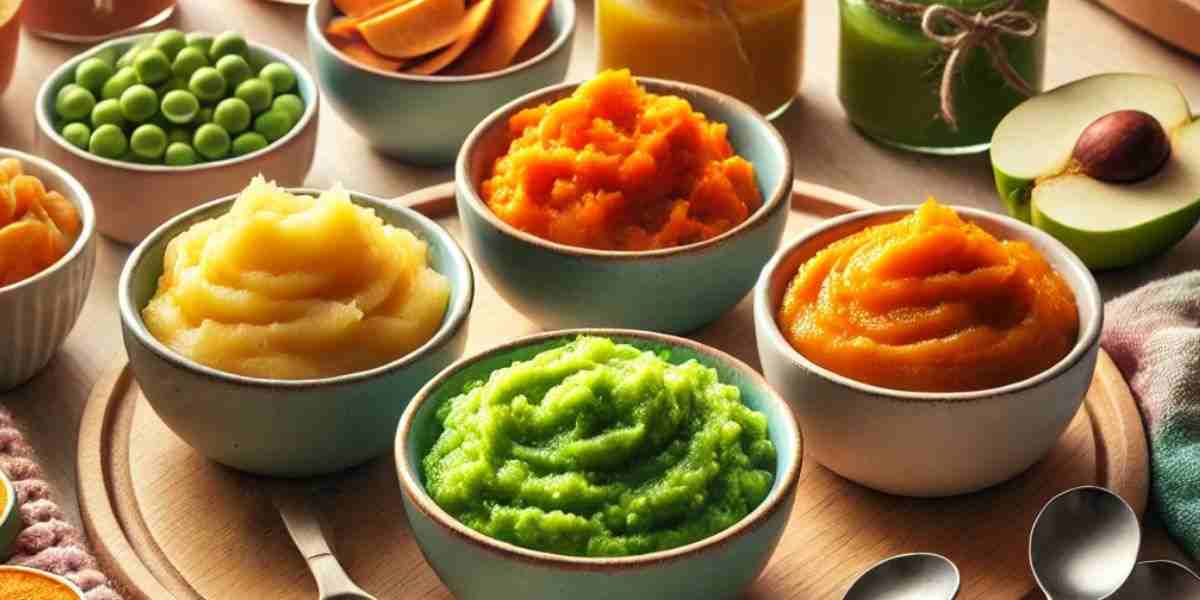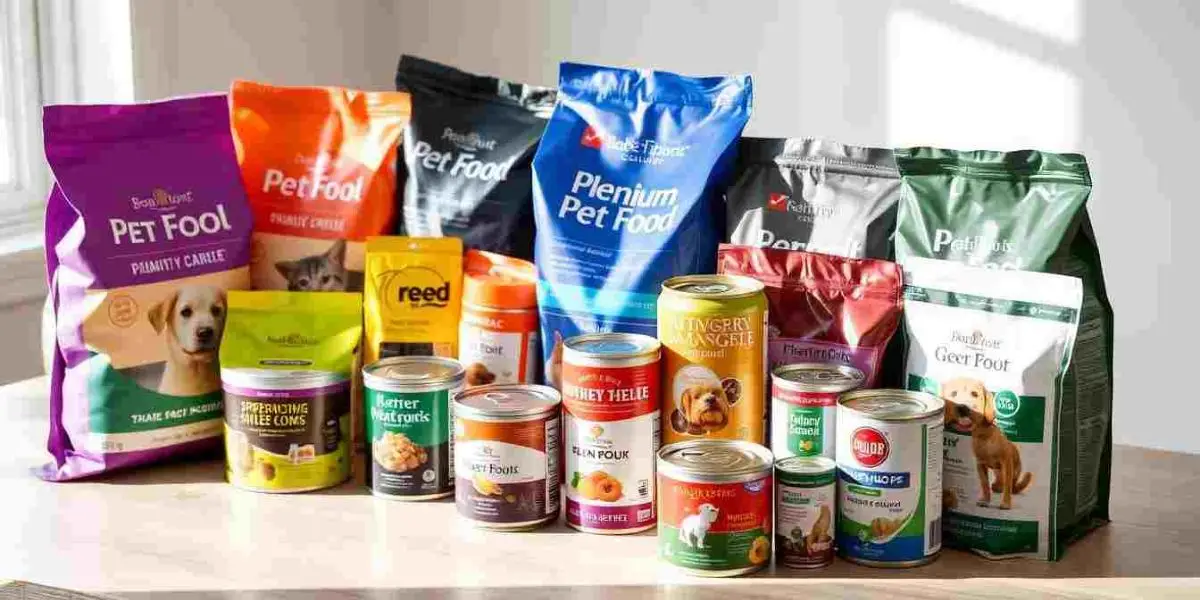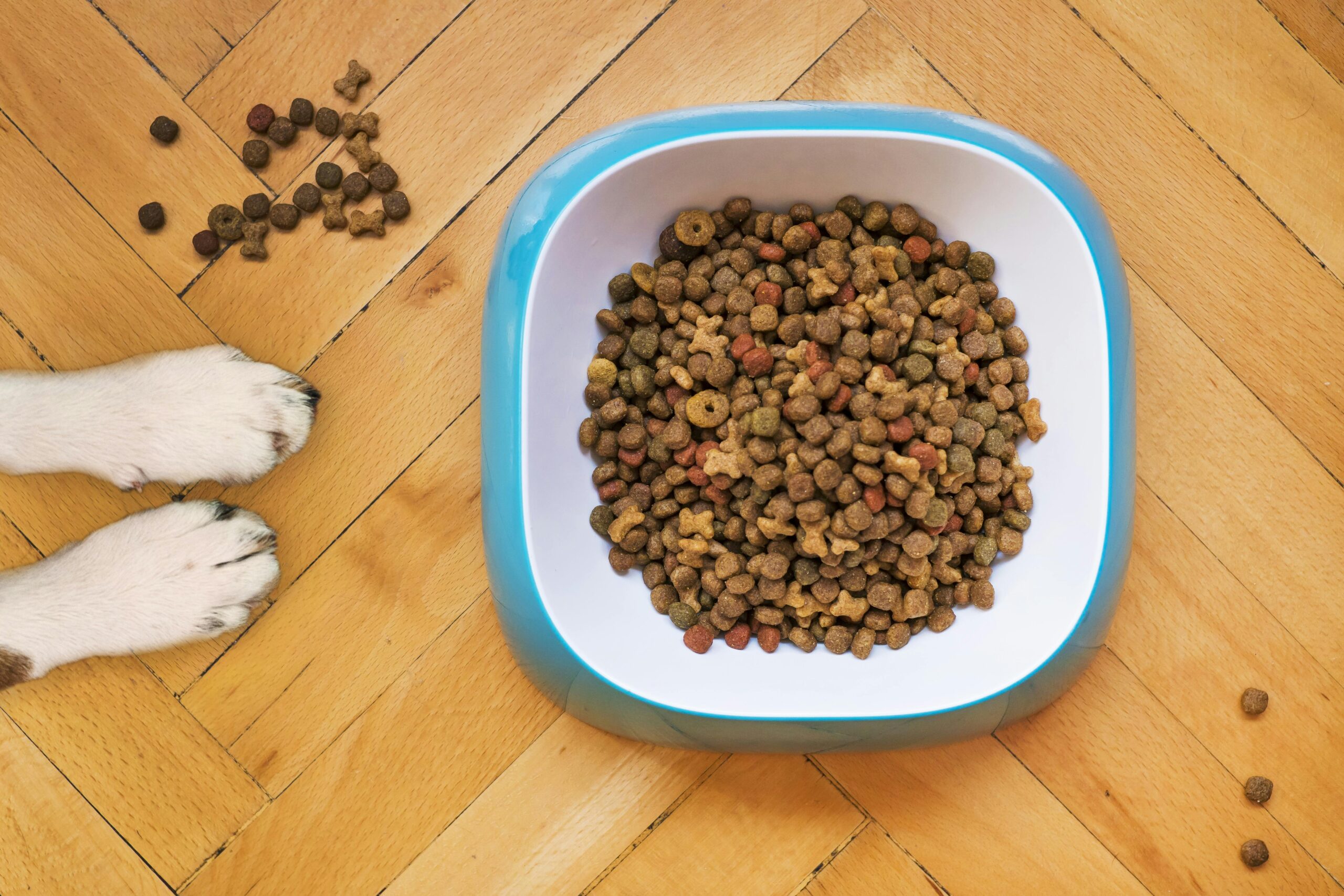As parents, one of our most important responsibilities is ensuring that our babies grow healthy and strong. One way to support that growth is by introducing high-fiber baby foods into their diet. Fiber plays a crucial role in digestion, immune health, and long-term well-being. In this guide, we’ll explore the best high-fiber foods for babies, their health benefits, and how to incorporate them into daily meals.
Why Is Fiber Important for Babies?
Fiber is essential for a healthy digestive system, especially as babies transition to solid foods. It helps:
-
Regulate bowel movements
-
Prevent constipation
-
Support a healthy gut microbiome
-
Stabilize blood sugar levels
According to the Centers for Disease Control and Prevention (CDC), nutrition during the first year of life lays the foundation for long-term health. Fiber plays a major part in that.
Benefits of High-Fiber Foods for Babies
-
✅ Promotes Healthy Digestion – adds bulk to stools for easier passage.
-
✅ Prevents Constipation – Keeps your baby regular.
-
✅ Supports Immune Function – A healthy gut means a stronger immune system.
-
✅ Controls Blood Sugar – Helps maintain energy and metabolic balance.
Top High-Fiber Baby Foods
Here are some of the best fiber-rich foods for babies:
1. Sweet Potatoes
Sweet potatoes are rich in both soluble and insoluble fiber, and they’re packed with vitamin A. Their smooth texture makes them ideal for beginners.
-
How to serve: Steam and puree or roast and mash.
-
Trusted source: National Institutes of Health (NIH)
2. Avocados
Avocados contain healthy fats and about 7g of fiber per 100g. They also support brain development.
-
How to serve: Mashed or diced depending on baby’s age.
-
Trusted source: American Academy of Pediatrics
3. Pears
Pears are soft, mild, and high in both fiber and water, which aids digestion and hydration.
-
How to serve: Steamed and pureed or diced for finger foods.
-
Trusted source: Children’s Hospital of Wisconsin
4. Peas
Peas provide fiber, protein, and vitamins like C, K, and folate—important for growth.
-
How to serve: Steam, mash, or blend.
-
Trusted source: U.S. Department of Agriculture (USDA)
5. Oats
Oats are a fantastic source of soluble fiber, especially beta-glucan, which promotes gut health.
-
How to serve: Cook with water or formula and add mashed fruits.
-
Trusted source: Harvard T.H. Chan School of Public Health
6. Carrots
Rich in fiber and beta-carotene, carrots support eye health and digestion.
-
How to serve: Steam or roast and then mash or chop.
-
Trusted source: World Health Organization (WHO)
7. Apples
Apples, especially with the skin, contain a good amount of fiber and Vitamin C.
-
How to serve: Peel, steam, and puree.
-
Trusted source: Cleveland Clinic
8. Bananas
Bananas are gentle on the stomach and contain soluble fiber like pectin, great for bowel regulation.
-
How to serve: Mash or slice.
-
Trusted source: Healthline
9. Lentils
Lentils are rich in fiber, protein, and iron, supporting digestion and energy.
-
How to serve: Cook well and mash or puree.
-
Trusted source: National Institutes of Health (NIH)
Sample Daily Meal Plan with High-Fiber Baby Foods
| Meal | Options |
|---|---|
| Breakfast | Oatmeal with mashed banana and flaxseed |
| Lunch | Pureed sweet potato and green peas |
| Snack | Avocado mash or steamed pear |
| Dinner | Lentil and carrot puree with apple compote |
Tips for Introducing Fiber to Babies
-
Start slowly: Add fiber-rich foods one at a time to avoid tummy upset.
-
Hydrate: Make sure your baby drinks fluids to aid fiber digestion.
-
Watch for signs: Constipation or gas could mean too much fiber too fast.
-
Nationwide Children’s Hospital offers excellent guidance on high-fiber diets for children.
High-Fiber Foods for Constipation in Babies
Constipation is common in babies starting solids. Helpful high-fiber options include:
-
Prunes (natural laxative)
-
Pears and plums
-
Sweet potatoes
-
Peas and lentils
For more, check the American Academy of Pediatrics’ guide.
Best First Baby Foods
Choosing the best first baby foods is a crucial decision in your baby’s nutrition journey. At around 6 months, babies are ready to start solid foods. The best first foods are simple, easy-to-digest options that are rich in essential nutrients like iron, vitamins, and fiber. Common choices for first baby foods include pureed fruits such as apples, pears, and bananas, as well as vegetables like sweet potatoes and carrots. These foods are gentle on your baby’s developing digestive system and provide the nutrients they need to grow strong.
High Fiber Baby Foods for Constipation
Constipation can be a common concern for babies starting solids. High-fiber baby foods for constipation are particularly helpful in easing this issue. Foods like pureed pears, prunes, peas, and sweet potatoes can help alleviate constipation due to their high fiber content. Fiber helps promote regular bowel movements and prevents discomfort. When introducing high-fiber foods, it’s important to ensure your baby is drinking enough fluids to help with digestion.
Stage 1 Baby Foods
Stage 1 baby foods are the first solid foods your baby will try. These foods are typically pureed and smooth, making them easy for your baby to swallow and digest. At this stage, the foods are single-ingredient purees with no added sugar or salt. Popular Stage 1 baby foods include apple puree, carrot puree, and rice cereal. These simple foods provide essential vitamins and minerals without overwhelming your baby’s system.
Best Baby Foods
When it comes to choosing the best baby foods, it’s important to focus on nutrient-dense, easily digestible options. Organic baby foods, such as pureed organic fruits and vegetables, offer a natural alternative free from pesticides and harmful chemicals. Additionally, look for foods rich in iron, calcium, and fiber to support your baby’s growth and development. Foods like avocados, oatmeal, and sweet potatoes make excellent choices for ensuring a balanced diet.
Organic Baby Foods
Organic baby foods are a great option for parents who want to ensure that their baby is consuming foods free from harmful pesticides, additives, and artificial ingredients. Organic options like pureed fruits, vegetables, and whole-grain cereals provide high-quality nutrition without the risk of exposure to toxic chemicals. Choosing organic baby foods ensures that your little one gets the best, most natural ingredients to support their health.
Baby Foods Without Heavy Metals
As parents one of the concerns when introducing solid foods is the presence of heavy metals in baby food. Unfortunately, some baby foods, particularly rice-based ones, may contain trace amounts of heavy metals like lead, arsenic, and cadmium. It is crucial to choose baby foods without heavy metals, and many manufacturers now test their products for safety. Opting for organic and well-regulated brands, such as Gerber baby foods, ensures that your baby is not exposed to harmful levels of contaminants.
Stage 2 Baby Foods
As your baby grows, it will begin to transition to Stage 2 baby foods, which are slightly thicker than Stage 1 foods and may include mixed ingredients. These foods are perfect for babies who are ready to handle a bit more texture. Stage 2 baby foods often include pureed combinations like apple and sweet potato, carrot and peas, and pear and spinach. At this stage, your baby may also start to experiment with small amounts of finger foods.
Gerber Baby Foods
Gerber Baby Foods are a trusted brand that many parents choose for their babies. Offering a wide variety of options, including purees, cereals, and snacks, Gerber products are known for their quality and convenience. Gerber baby foods come in several stages, so parents can choose the right consistency and flavor as their babies grow. The company also offers organic options and ensures its products are free from harmful additives and preservatives.
Baby Foods to Start With
When starting your baby on solids, the best baby foods to start with are those that are mild, easy to digest, and nutritious. Rice cereal, pureed apples, and carrot puree are great choices to introduce to your baby. These foods have a smooth texture and are rich in essential nutrients like vitamins and fiber. It’s essential to introduce new foods one at a time to check for allergies or sensitivities.
Best Baby Foods to Start With
Some of the best baby foods to start with include sweet potatoes, avocado, and bananas. These foods are not only high in nutrients but also have a naturally sweet taste that appeals to babies. Additionally, they are gentle on the digestive system, making them excellent first foods. Be sure to offer them in a pureed form to make it easier for your baby to swallow.
Baby Foods with Heavy Metals
Unfortunately, baby foods with heavy metals can sometimes be found on the market, particularly rice-based foods. Heavy metals like arsenic, cadmium, and lead can pose risks to babies’ health, especially since their developing bodies are more susceptible to toxins. To reduce the risk, it’s important to choose products from trusted brands that conduct rigorous testing for safety. Additionally, opting for a diverse range of baby foods will limit exposure to any single food that may be more prone to heavy metal contamination.
First Baby Foods to Try
The first baby foods to try are those that are nutrient-dense, easy to digest, and well-tolerated by most babies. Start with single-ingredient purees like apple, pear, and sweet potato. These are ideal for introducing your baby to new flavors and textures without overwhelming their sensitive digestive system. After introducing the first few foods, you can slowly start combining flavors and textures as your baby grows.
Stage 3 Baby Foods
Stage 3 baby foods are designed for babies who are ready for even more variety and texture. These foods are chunkier and may include small pieces of soft fruits, vegetables, and meats that your baby can pick up with their fingers. Stage 3 baby foods help babies develop their chewing skills and can include meals like chicken with vegetables or beef with peas.
Good First Baby Foods
The good first baby foods are those that provide essential nutrients and are easy for babies to swallow. Examples include sweet potatoes, peas, and bananas. These foods offer a balanced mix of fiber, vitamins, and minerals, helping your baby grow strong and healthy. As your baby begins to develop, you can introduce more complex textures and flavors.
Stage One Baby Foods
Stage one baby foods are typically pureed and smooth, making them ideal for babies just beginning to explore solids. Foods like apple puree, pear puree, and sweet potato are popular options at this stage. Stage one baby foods help babies adjust to solid foods while providing the nourishment they need for healthy growth.
What Are Stage 1 Baby Foods?
Stage 1 baby foods are simple, single-ingredient purees that are designed for babies who are just starting solids. At this stage, babies are usually ready for food around 6 months of age. Stage 1 baby foods are smooth, easily digestible, and free from additives or preservatives. These foods help babies adjust to eating solids while introducing them to the world of flavors and textures.
FAQ
1. When can I introduce high-fiber foods to my baby?
It is safe to introduce fiber-rich foods to your baby once they start eating solids, usually around 6 months. Begin with simple purees and gradually increase the variety and texture.
2. How do I know if my baby is getting enough fiber?
Look for signs of healthy digestion, such as regular bowel movements and no signs of constipation. If your baby is eating a variety of fiber-rich fruits, vegetables, and grains, they are likely getting enough fiber.
3. Can high-fiber foods cause gas in babies?
Yes, some fiber-rich foods like beans and lentils may cause gas or bloating, especially when introduced suddenly. It’s best to start with smaller portions and observe your baby’s tolerance.
4. Are there any fiber-rich snacks for babies?
Yes, you can serve small pieces of fruit like pears, apples, or bananas, as well as finger foods like soft avocado, roasted sweet potato cubes, or cooked carrots.









